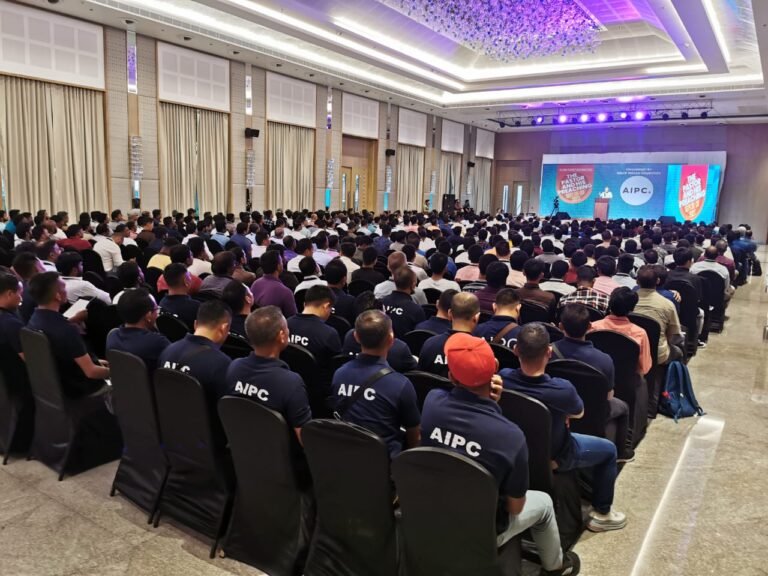Expository Preaching – Question and Answers (Part 1)

8 minutes to read
In the first post from Brother Steven J. Cole’s responses to questions about expository preaching, we look at just one question, which gives some practical insights about sermon preparation: How do you prepare your expository sermon?
The process involves studying the text in its context, making observations, interpreting the text in line with the genre, grammar, history, and context, and then applying it. Sometimes I’ve thought that I would preach a whole paragraph, but after I got into it, I realized that there was just too much to explain and apply well if I covered all those verses. So I had to divide it up. After prayer, I read and re-read the text over and over, jotting down insights (on my computer). G. Campbell Morgan said that he would read the entire book of the Bible 50 times before he would preach it! I try to come up with a rough outline of the section and understand how it fits into the flow or argument of the book. I bombard the text with questions: Why does the author use this title for God? Why does he use this or that word? What words are repeated for emphasis? What are the verb tenses? What theological or grammatical issues need to be resolved? How does the truth here harmonize with other Scriptures (e.g. Paul and James on justification by faith or works)? Why did the Lord include this portion of Scripture in its context? What don’t I understand? What questions will my church be asking?
I try to figure out what the subject of the text is and what it is saying about the subject. If I can, I take a stab at writing the main idea of the text in a single sentence with a subject and predicate. For example, what is the subject of 1 Corinthians 13? “Love” is too broad. “The superiority of love above spiritual gifts” is better. The chapter breaks down into three sections:
1. The preeminence of love (1-3): love is greater than all spiritual gifts because, without love, gifts are empty.
2. The practice of love (4-6): love is greater than all spiritual gifts because of its selfless characteristics.
3. The permanence of love (8-13): love is greater than all spiritual gifts because it is permanent, whereas gifts are not.
If you were preaching the whole chapter, you could sum up the main idea as: Love should be our priority in relationships because it takes preeminence over all spiritual gifts, it is selfless in practice, and it is more permanent than gifts.
The main points of the sermon should all stem from and support the main idea. Any sub-points under each main point should stem from and support that point. In the example above, point 1 would be: “Love is greater than all spiritual gifts because, without love, even the greatest spiritual gifts are empty.” Under that point, your sub-points could be:
A. Love is greater than the gift of speaking in tongues.
B. Love is greater than the gift of prophecy.
C. Love is greater than the gift of knowledge.
D. Love is greater than the gift of faith.
For clarity, make each point and sub-point a complete sentence, not a phrase. Usually, the points should not be questions but rather statements.
Once I’ve studied the text, I surface issues that need to be clarified in the sermon: unclear or difficult words; puzzling statements that seem to contradict other Scriptures; difficult grammatical constructions. You may need to do word studies on the significant or difficult words. You may need to compare Scripture with Scripture to try to interpret the text correctly. If you know Greek or Hebrew well enough, you can try to work out the grammatical issues. But here is where I start reading commentaries. I start with the more technical ones first, trying to figure out interpretive issues, textual problems, history and background, grammatical matters, etc. After reading a half dozen or so, I generally know what the various problems are and what the major views are. I save reading other preachers’ sermons for last (Morgan, Spurgeon, Piper, Boice, Lloyd-Jones, etc.), after I know where I’m going with my sermon. I don’t want to be locked into preaching their outlines or material. When I read them, I'm looking to see how they explained and applied this text to their congregations or what illustrations they may have used to convey the truth.
All through this process, I'm throwing thoughts onto the computer screen in pretty much random order. Or, if I’ve organized the text into a rough outline, I can put various insights into the section where I probably will use them. Sometimes as I study further, I realize that I need to modify the main idea or the main points. I try to come up with a good introduction and figure out how I want to conclude the message. A good introduction grabs attention, surfaces a need so that people want to hear how the message will resolve that need, and introduces the body of the sermon (Robinson, 160-165). The conclusion can take different forms. A summary of the main idea and points; an illustration showing how the idea works out in life; a memorable quotation; a question or series of questions; a prayer; specific directions on how to apply the message; or, visualization, where you describe a hypothetical situation showing how to apply it (Robinson, 167-171). After I’m done with this process, I print out my study notes (usually 2-3 pages at most) and then use them to work out my full manuscript.
I type out my full manuscript on half sheets. The discipline of writing a full manuscript forces me to be precise and concise. I usually have far more than I have time for, so I go back and chop out stuff that may be interesting but isn’t crucial to the point. Dr. Robinson used to say, “Your sermon should be a rifle shot, not a shotgun blast.” If I have ten verses related to the point I’m making but don’t have time for all ten, I pick the best one or two and put the others in parentheses for people to look up on their own. The exception would be if I’m trying to convince people of a truth that they may not accept (like sovereign election). I want them to see that I’m not making it up, so I’ll show them that it’s in many Scriptures. I’m always aiming at application—how should this text affect my life and my people’s lives? My limit is 3,500-3,550 words for a 40-minute sermon.
I like to have my sermon done by Wednesday or Thursday morning at the latest so that I can think about it over and over before Sunday. I let my wife read the manuscript. She often finds typos or lets me know when I’m not communicating something clearly. The preparation to this point takes anywhere between 15-25 hours, depending on the difficulty of the text. I have often come home after a hard first day of study and told Marla, “I don’t have any idea what I’m going to say about this text. I feel like I fished all day and caught nothing!” Once in a rare while the whole thing comes together in a burst of inspiration. This might shorten the process to 12 hours. Even if I’m preaching a sermon that I preached years before, I spend hours doing more study and then revising it.
Sometimes I’ll get an insight or illustration or think of a key verse I omitted after I’ve printed out my manuscript, so I’ll jot it in the margin. Saturday morning I go over the sermon, underlining and highlighting main points and keywords. I go over it again Saturday night, praying through it as I go. I take my manuscript into the pulpit, but I don’t read it, except to give a quote or statistics verbatim or to state one of my points verbatim. When I’m preaching, I can glance down at the highlighted words and remember where I’m going with that paragraph. I try to maintain eye contact with the congregation as much as possible while I’m preaching.
I don’t think every expositor needs to prepare exactly the way I have described, but I hope reading about my process encourages you to work hard in studying God’s word as you prepare to preach each sermon.
This article is based on the Q&A session with Brother Steve J. Cole in a meeting held in July 2021 entitled ‘Expository Preaching.’
Please click here to read the article on 'What is Expository Preaching?' by Bro. Steven J. Cole.
Please click here to watch the video on 'What is Expository Preaching?' by Bro. Steven J. Cole.
Please click here to read Part 2 of the Q&A session article on "Expository Preaching" by Bro. Steven J. Cole.
Please click here to read Part 3 of the Q&A session article on “Expository Preaching” by Bro. Steven J. Cole.
Please click here to read Part 4 of the Q&A session article on “Expository Preaching” by Bro. Steven J. Cole.




